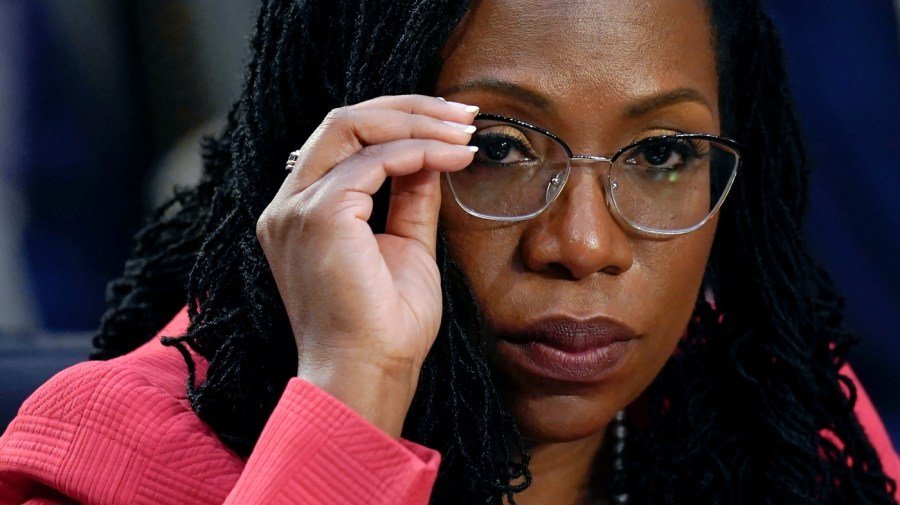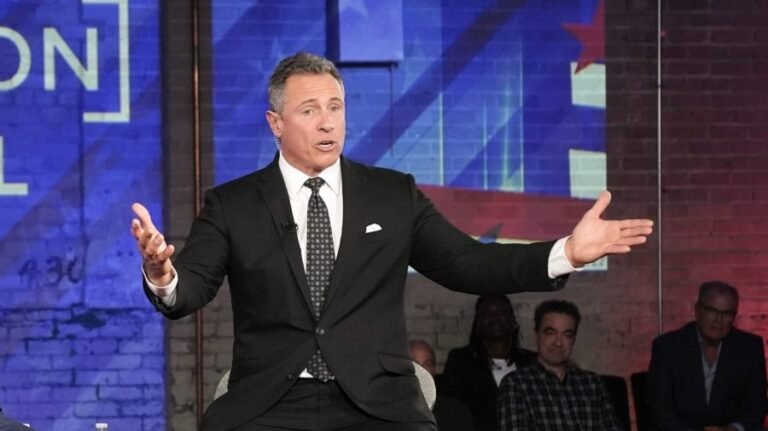
The Supreme Court’s decision in last month’s birthright citizenship case was jaw-dropping, but not for the reason you might think.
First, the court didn’t actually rule on birthright citizenship — and when it eventually does, the Trump administration is almost certain to lose for all sorts of reasons. Instead, the court limited its opinion to a procedural question: whether district courts are allowed to issue “universal injunctions.” Can judges bar the government from enforcing a particular policy with respect to everyone anywhere, or can they only issue injunctions that protect the people who have actually filed suit?
This kind of question is usually the subject of arcane legal reasoning involving things like the Judiciary Act of 1789. And there was a certain amount of that in this opinion. But that’s not the interesting part.
The interesting part is that Justice Amy Coney Barrett, who wrote the majority opinion outlawing universal injunctions, and Justice Ketanji Brown Jackson, who wrote in dissent, transformed themselves into living avatars for the yin and yang of judicial philosophy — formalism and legal realism. You might think this would be nerdy and boring, but not this time.
Formalism, in a nutshell, is the idea that judges should decide cases based on carefully following legal rules, ignoring the real-world impact of their decisions. Legal realism, in contrast, suggests that judges should tailor decisions with any eye to how they will affect society.
This is a long-running debate in American law, but seldom do you see it break out in such stark terms — almost never in a Supreme Court case, as it has here.
Jackson writes, “In a constitutional Republic such as ours, a federal court has the power to order the executive to follow the law—and it must.” She is concerned that, “Allowing the executive to violate the law at its prerogative with respect to anyone who has not yet sued carves out a huge exception — a gash in the basic tenets of our founding charter that could turn out to be a mortal wound. … [I]t is not difficult to predict how this all ends. Eventually, executive power will become completely uncontainable, and our beloved constitutional republic will be no more.”
Barrett, by contrast, views Jackson’s concerns as irrelevant. “[A]s with most questions of law, the policy pros and cons are beside the point,” she writes. “No one disputes that the executive has a duty to follow the law. But the judiciary does not have unbridled authority to enforce this obligation — in fact, sometimes the law prohibits the judiciary from doing so. … Because analyzing the governing statute involves boring ‘legalese,’ [Jackson] seeks to answer ‘a far more basic question of enormous practical significance.’”
For lawyers, this raw disagreement is astounding — a sort of legal version of “King Kong versus Godzilla.” I find myself uncomfortable with Jackson’s raw emotion and prefer Barrett’s approach.
But the real world doesn’t care about my preferences. The sad truth is that Barrett’s reasoning displays an ivory-tower complacency that utterly fails to meet the current moment. The sad truth is that Jackson is right.
The problem isn’t this one opinion, however — Barrett is probably correct about universal injunctions. The problem arises when you consider the court’s recent rulings in context rather than in isolation.
Over the last few years, the Supreme Court’s conservative majority has systematically exempted large swaths of the federal government from the rule of law. Sure, as Barrett says, the executive branch has a duty to follow the law, but in their opinion, that’s a matter for the president and his conscience rather than the courts.
Per the Supreme Court, the president is immune to legal accountability for any actions he takes as president, up to and including ordering Seal Team Six to assassinate his political rivals. Federal officers cannot be sued for violating your constitutional rights while enforcing immigration laws, no matter how outrageously they behave. And now, with this decision, a district court cannot even issue an injunction that requires these officers to obey the law.
This is all backward. Constitutional rights have to be enforceable. They cannot rely on the good will of the government. This utter lack of accountability is a charter for abuse, and that abuse is happening right now.
Just over a week ago, in an effort to arrest someone who had allegedly rammed a federal vehicle, ICE agents used an explosive to blow open the door of a house that contained a sleeping mother and her children, all U.S. citizens. This was a gross violation of the Fourth Amendment. Even a no-knock warrant would have required exigent circumstances that weren’t present in this case; using explosives is a whole other level of excessive force.
The whole exercise was as unnecessary as it was excessive. The suspect — also a U.S. citizen — wasn’t at home; he later turned himself in and was released on bail.
Had ordinary police officers behaved this way, civil rights suits would be filed, investigations conducted and, probably, people fired. But thanks to the Supreme Court, this bit of performative thuggery will never see the inside of a courtroom. And because no one can ever be held accountable, this kind of outrageous behavior will likely only get worse. And there’s going to be a lot more of it, too — the bill that Trump just signed increases ICE’s annual budget from $8 billion to $37 billion. That’s more than Israel spends on its military.
Law is applied philosophy. It has to work in a disordered and inconsistent world. Most of the time you need Barrett’s line of thinking. But sometimes, when the rule of law itself is in question, when the system is being threatened from within, you need moral clarity. You need Jackson’s reasoning.
Last week, we celebrated the 249th anniversary of our independence. There is no better time to contemplate the state of our country and what it will look like on the 250th anniversary. Jackson brings us a warning of tyranny. We ignore it at our peril.
Chris Truax is a charter member of the Society for the Rule of Law and an appellate attorney.




